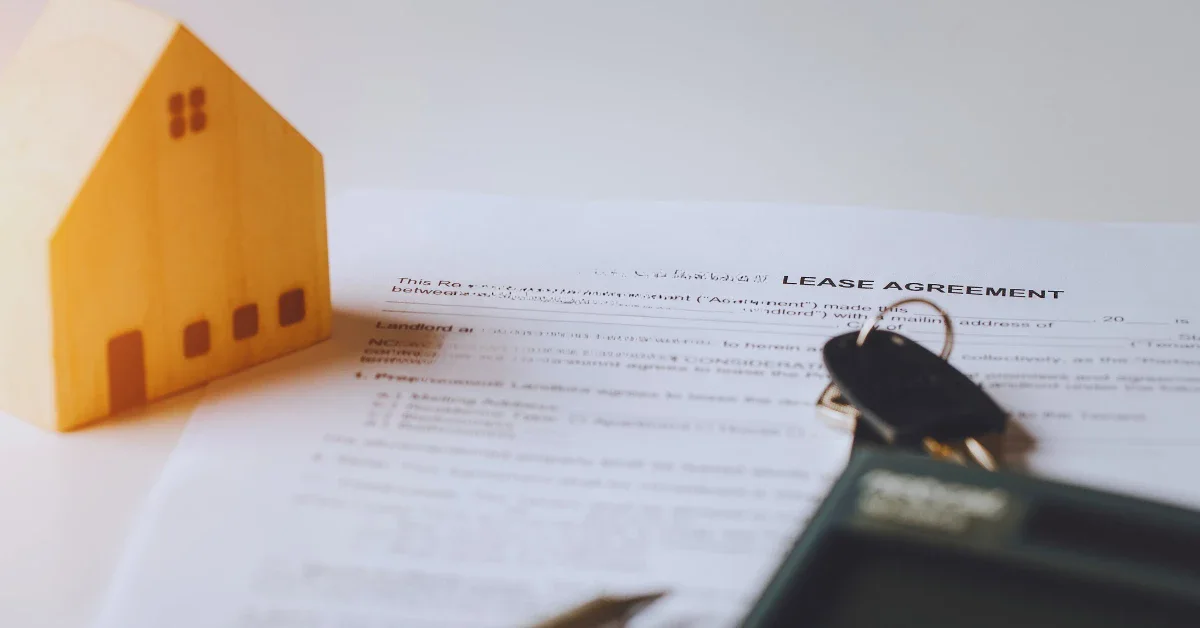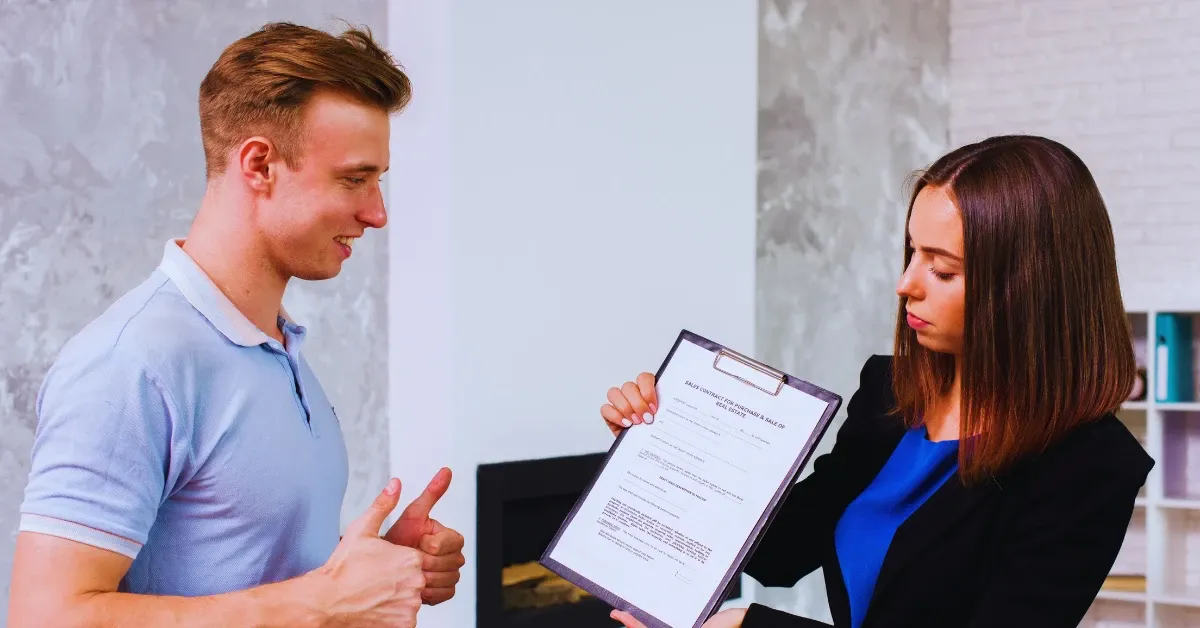As a tenant without a lease, you still have certain legal rights. These rights may vary depending on your state or country.
Generally, you have the right to quiet enjoyment of the property, the right to basic amenities like heat and running water, and the right to a safe and habitable living space.
In this article, We’ll discuss some of the essential rights of tenants without a lease and what you could do if your landlord violates any of these rights.

Legal Protections For Tenants Without Leases
As a tenant without a lease, you may wonder about your legal rights and protections.
Well, it’s vital to understand that regardless of the absence of a lease agreement, you still have rights as a tenant.
State laws and regulations offer protection to tenants, especially if their landlords are violating their rights.
The Legal Protections Tenants Have, Regardless Of Lease Agreements
Below are some legal protections that tenants enjoy, even without a lease agreement:

- Landlords must give tenants adequate notice before evicting them. The notice period varies from state to state, but it is usually 30 to 60 days.
- Landlords are not permitted to shut off your utilities, change your locks, or remove your doors, among other things, to force you to vacate.
- Tenants have the right to a rental unit that is livable. This entails running water, electricity, heating, and a building that is free of health and security risks.
- Tenants have the right to privacy in their rented units. Landlords cannot enter their units without prior written notice except in emergencies.
- Landlords must keep all their promises and agreements with tenants, such as repairs and maintenance.
How Tenants Are Still Protected Under State Laws And Regulations?
State laws and regulations regarding leasing and tenancy intend to protect tenants and provide them with the necessary rights.
These laws also specify the duties of landlords to ensure the safety and well-being of their tenants.
Tenants without leases have lessened leverage compared to tenants with written rental agreements.
However, they are still protected under state laws and regulations. Knowing the law and asserting your rights is essential in these situations.
Even without a lease agreement, tenants enjoy various legal protections. Landlords must provide adequate notice before eviction.
Tenants have a right to livable rental units free of health and security risks, among others.
Additionally, state laws and regulations provide protection, ensuring that landlords adhere to their duties and obligations.
Navigating Rental Agreements Without A Formal Lease
As a tenant without a formal lease agreement, it can be challenging to navigate your rights in a rental situation.
However, there are still laws and protections in place to ensure that you are treated fairly and ethically by your landlord.
How To Establish A Formal Rental Agreement Without A Lease?
There are several ways to establish a formal rental agreement without a lease. Here are some key points to keep in mind:
Verbal agreements
Even if you don’t have a written lease, a verbal agreement with your landlord can still be legally binding.
However, it’s essential to document the details of your agreement to protect yourself and avoid misunderstandings.
Write down the dates, rent amount, and other significant terms of your agreement in a journal or on a piece of paper and ask your landlord to sign it.
Explore alternative forms of documentation
If your landlord won’t sign a written agreement, consider asking if they would be willing to accept an email or text message outlining the terms of your agreement instead.
While not ideal, it’s better than having no record of your rental agreement at all.
Research your local laws
Laws regarding rental agreements and leases vary from state to state. Research your local tenant rights and laws to ensure you are informed and protected.
Keep track of your rent payments
Consistently keeping good records of your rent payments will help establish your residency and make it easier to prove your tenancy if there are any disputes with your landlord.
What To Do If A Landlord Is Unwilling To Provide A Lease?
Sometimes, despite your best efforts, your landlord may refuse to provide you with a formal lease. Here are some steps to take:
Try to negotiate with your landlord
Start by attempting to negotiate with your landlord to see if they will agree to a written lease. Explain why having a lease is important to you and how it can benefit both parties.
Document your rental agreement
If your landlord is still unwilling to provide a lease, it’s crucial to document the details of your rental agreement independently.
Write down the essential terms of your agreement and keep track of rent payments in a journal or on a piece of paper that you and your landlord both sign.
Know your rights
Even without a written lease, you may still have protections under state and local law as a tenant.
Research your tenant rights in your area to ensure that you are informed and aware of your legal protections.
Consider contacting a lawyer or tenant advocacy organization
If you are having difficulty establishing a rental agreement with your landlord, consider seeking the help of a lawyer or tenant advocacy organization.
An expert can help guide you through the process and provide legal support and advice if necessary.
Remember to research your tenant rights and legal protections in your area to ensure that you are informed and aware of your rights.
Specific Rights Of Tenants Without A Lease
As a tenant without a lease, you may be uncertain of your legal rights. However, there are specific rights that protect you, such as the right to privacy and a livable space.

Right To Privacy
As a tenant without a lease, you still have a right to privacy in your rented space even if it is not stipulated in a lease agreement.
This means that your landlord cannot enter your rented space without your permission.
- Your landlord should always provide notice of intent to enter.
- Unless there is an emergency, they should only enter with your permission.
- If you suspect that your landlord is entering your rented space without your permission, notify them in writing to prevent any further occurrences.
Right To A Livable Space
As a tenant without a lease, you have the right to a livable space that meets specific standards.
Your rented space should have working heat, water, and electricity, as well as be free of pest infestations.
- Your landlord is responsible for providing the necessary repairs to make your rented space habitable.
- You should always notify your landlord in writing about any repairs that need to be made promptly.
- If you live in a city, there may be specific laws that dictate what a livable space should be like.
How Tenants Can Assert Their Rights And What To Do If Their Rights Are Violated?
Knowing your rights is important, but it’s equally important to know how to assert your rights.
It’s not uncommon for landlords to violate tenant rights, but there are steps you can take to protect yourself.
How To Assert Your Rights?
You can assert your rights by first notifying your landlord about any issues. This should always be done in writing so that you can keep a record of all communications.
Be specific about the problem and what needs to be done to fix it.
- Follow up with any communications in writing and keep copies for your records.
- If the issue is not resolved within a reasonable amount of time, you may need to take legal action.
- Seek legal advice before taking any legal action, especially if you’re unsure of your rights.
What To Do If Your Rights Are Being Violated
If your rights as a tenant are being violated, there are actionable steps you can take to protect yourself. The most important thing is to document everything that has occurred.
- Keep records of all correspondence between yourself and your landlord.
- Take pictures or videos of any violations that have occurred.
- Consider seeking legal advice from a tenants’ rights lawyer or a legal aid society if you’re having trouble asserting your rights on your own.
Remember, as a tenant without a lease, you still have specific rights that landlords must honour.
Knowing and asserting your rights is essential in ensuring that you have a habitable and safe living space.
FAQS
Can My Landlord Kick Me Out Without A Lease?
No, your landlord cannot kick you out without a lease. They must have a valid reason, which can include non-payment of rent, violating the lease agreement, or engaging in illegal activity.
How Long Can I Stay Without A Lease?
Without a lease, you are considered a tenant at will, and your tenancy can be terminated at any time with proper notice. However, if you have been living in the unit for an extended period, you may have legal protections under state law.
Do I Have To Pay Rent Without A Lease?
Yes, you do have to pay rent even without a lease. Your tenancy is still legally binding, and you are responsible for paying rent on time. If you don’t pay rent, your landlord can take legal action to evict you and collect unpaid rent.
Conclusion
Even without a lease, you’re not defenceless. You possess essential rights like enjoying peace, privacy, and security.
Remember, local laws govern these rights, so if you’re unsure, seek legal advice to get a clear understanding of your unique situation as a tenant.
Stay informed, stand up, and protect your tenant rights!
Reference
https://www.nyc.gov/assets/buildings/pdf/tenants_rights.pdf
